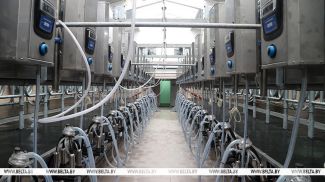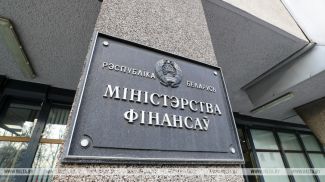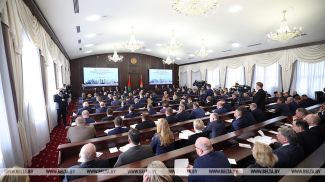MINSK, 5 September (BelTA) – The Economy Ministry has prepared a bill designed to encourage investment activity, BelTA has learned.
Today the Belarusian economy strongly needs inflow of capital funds and more active investment efforts on the part of commercial entities. The government has identified weak spots in the legislation that had been deterring the inflow of investments while the Economy Ministry has drafted a bill on assisting with and stimulating the realization of investment projects in the Republic of Belarus.
The document is designed to provide support for every investment project starting with small ones and ending with massive ones. The projects have to meet the government-defined priorities and have to produce a positive effect for the economy of the region or the country as a whole.
The bill is based on Belarus president ordinance No.10 “On creating additional conditions for investments in the Republic of Belarus” that has been in effect for over ten years.
As far as novelties are concerned, the bill suggests three brand new mechanisms for realizing investment projects. First of all, the investment contract. Investment contracts have been in place since 2009. Legislative and regulatory compliance practices as well as external challenges have prompted the adjustment of the mechanism. The bill offers an expanded choice of privileges to major investment projects. The bill also specifies a minimal size of investments for signing an investment contract. As for the expanded privileges, the bill offers a stabilization clause, exemption from profit tax, reimbursement of infrastructure construction costs, the ability to repurpose the land plot and change the functional composition of the facility, and other options.
Secondly, the bill suggests a special investment contract. It has been developed taking into account similar experience of the Russian Federation. It is designed to increase the degree of manufacturing localization and encourage the establishment of new import-substituting manufacturing facilities. Government purchases of the goods the investor will make and the lack of a specified investment size are major novelties in this regard. Special investment contracts will be signed on a competitive basis, the Economy Ministry noted.
Thirdly, the bill suggests investment projects authorized by a municipal government agency. It facilitates the realization of investment projects. There is no classic investment contract between the investor and the state. The key stimuli for investors include the provision of the most popular list of privileges (exemption from the fee collected for the right to lease a land plot, exemption from rental fees, from the land tax, and other things). This mechanism is designed to balance interests of investors and the region. Regional administrations will determine priorities for implementing such small projects taking into account development peculiarities of every district.
The abovementioned approaches to the realization of projects represent only part of the novelties. It will be possible to fully evaluate the bill within the framework of public hearings soon.













